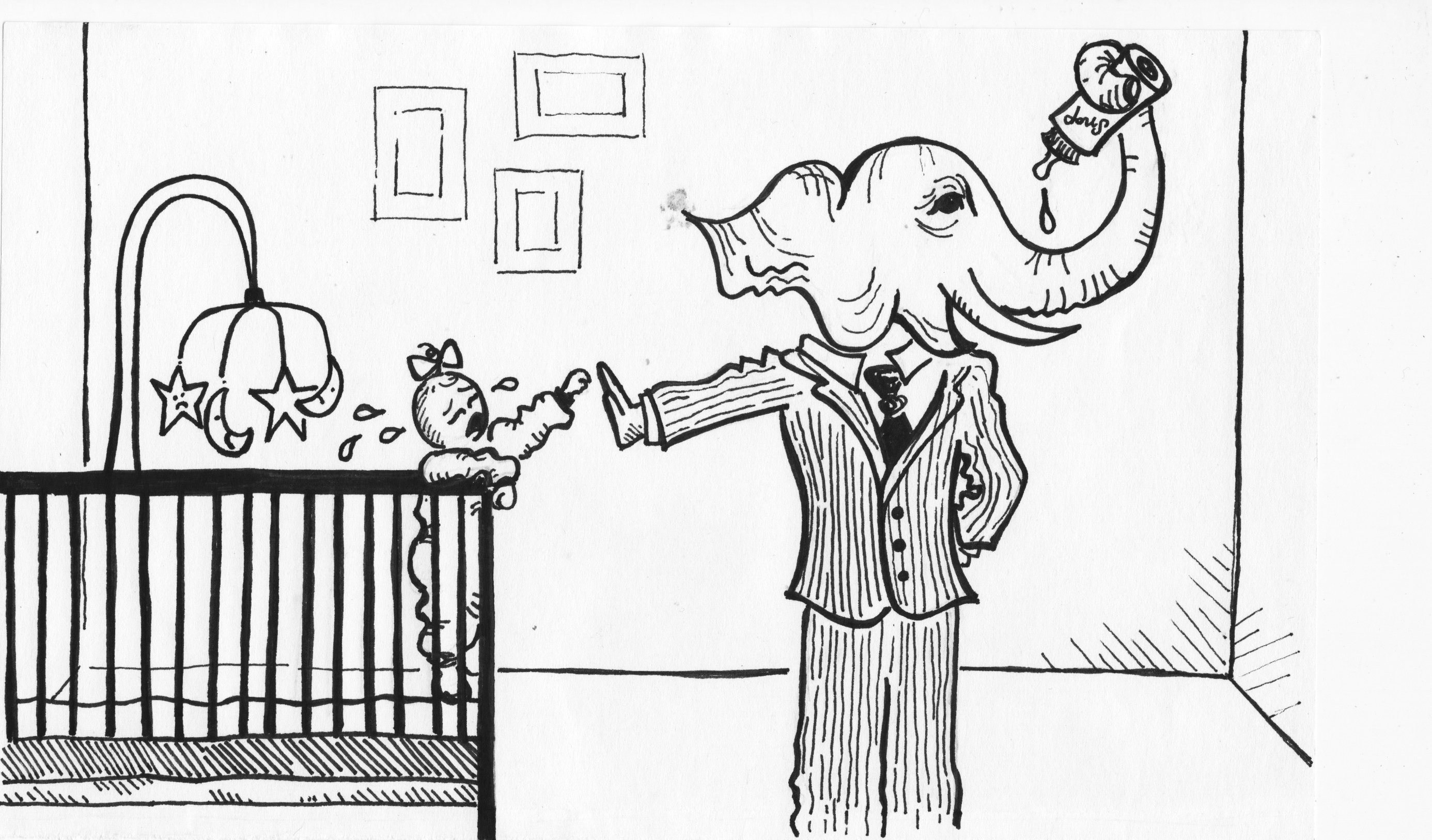Recently, a partisan passage of a bill merited a veto threat from the White House. I’m not talking about the House Republicans’ valiant 41st attempt to repeal Obamacare. I’m talking about the bill that the Obamacare repeal vote has overshadowed: the passage of the Nutrition Reform and Work Opportunity Act, which will cut $40 billion from the Supplemental Nutrition Assistance Program (SNAP) over the next few years, despite what its misleading title might suggest.
At my congressional internship this summer, I was charged with a particularly cruel and unusual task: I had to be nice to everyone who called about this bill. I had to be nice to the constituents who called the office, even when they were wrong. Day after day, I picked up the phone and listened to various complaints, sometimes heartfelt and sincere, other times furious and ill-informed.
“Don’t engage! They want you to engage so they can be mad at you,” was the advice I received. I gritted my teeth and nodded along to the people telling me that we had to get rid of SNAP because it is an awful welfare program that lets lazy people buy cigarettes and alcohol off of the taxpayers’ dime. To the contrary, SNAP is not a welfare program, and it doesn’t cover the sale of cigarettes and alcohol.
What’s worse, even people who were “on my side” had no idea whether it was effective. For the most part, callers repeated talking points without really knowing or caring what the legislation that they loved or hated did.
So many people misunderstand SNAP. Here’s the truth: The Republican vote to prevent “able-bodied adults” from receiving SNAP relies on the obsolete notion considering that 87 percent of SNAP recipients are households with a child, a senior, or a disabled person.
The “able-bodied adults” without dependents, who, according to Speaker John Boehner, should really be working, make up less than 10 percent of SNAP recipients. Moreover, if they are eligible for SNAP, that either means they are working and unable to generate enough income or they are unemployed. The implication here is that if you are theoretically able to work but still cannot support yourself, it’s okay if you go hungry. The Republicans who voted for the bill are saying that if you cannot find a job in three months, maybe you deserve to stay poor and hungry.
As for the allegations of “waste, fraud, and abuse,” Boehner might be happy to know that less than three percent of benefits go to ineligible households. This is a strong record of efficiency. In fact, despite the stereotype of bumbling and inefficient government programs, SNAP contains one of the most rigorous and effective quality control systems of any public program. Furthermore, SNAP actually helps the economy: every $5 in SNAP benefits generates $9 of economic activity.
But, this debate is not simply a matter of two sides arguing about facts and figures. The ongoing conflict over the Farm Bill points toward a bigger ideological rift. One side is saying that cutting SNAP will hurt people who are already going hungry. The other side wants to cut it drastically to save the taxpayers money without even pretending to care how it will affect those who have not felt any economic recovery yet.
When did “helping” become a dirty word? We shouldn’t have to justify helping those who are going hungry during a slow economic recovery or apologize for a public assistance program doing exactly what it is supposed to do. We keep justifying food aid by reiterating that the majority of the aid is going to children, that the expansion of the program will stop with an upward swing in the economy, and that it is all a temporary measure. That argument works, but SNAP is helping millions of Americans who would otherwise go hungry. It could be helping more Americans who are still going hungry, which should be enough of a justification in itself.
Meanwhile, continued cuts in the defense budget are drawing worried commentary from all over the political spectrum, even though our defense budget is still larger than any other country’s in the world. At some point, spending on new drone technology became patriotic and spending money on food for people in need became wasteful. Questioning defense spending became an unspeakable crime, and wanting to continue funding a program that helps 48 million Americans and lifts four million of them above the poverty line became something we need to apologize for.
I propose here that we stop apologizing and using talking points that lead to nowhere. Stop being ashamed of public policy that actually works and start demanding that it does more. If we can’t even educate ourselves on the realities of SNAP, then maybe we’re the lazy ones.







“the passage of the Nutrition Reform and Work Opportunity Act, which will cut $40 billion from the Supplemental Nutrition Assistance Program (SNAP) over the next few years, despite what its misleading title might suggest.”
Doesn’t spending for SNAP increase every year under the Nutrition Reform and Work Opportunity Act? If so, then how is it being cut? Perhaps you could explain.